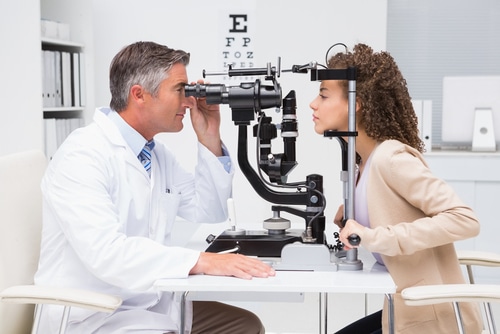It’s your responsibility to look out for your body and health. Taking care of sensitive body parts like your eye is essential. It’s best to visit eye care professionals, especially if you have an eye condition.
Before seeing an eye care professional, you should know that there are three types. This article will discuss the types of eye care professionals you can visit for your concerns.
1. Optometrist
Optometrists provide vision care expertise mainly focused on the eye’s health. These eye care professionals offer eyesight testing, treating, diagnosing, and managing vision changes.
People who want to pursue this field must attend optometry school instead of medical school. Because of this, optometrists don’t have a medical degree but have a doctor of optometry degree (OD) rather. The pursuit of optometry can reach up to 4 years of postgraduate study to get a doctorate in this area.
While optometrists identify and treat eye and vision problems, their area of expertise isn’t allowed to do surgeries. But, they can still do minor operations like foreign body removal, laser eye surgery, and administering injections like anesthesia. Optometrists conduct the following practices in their job:
- Vision tests
- Eye exams
- Identifying eye abnormalities
- Prescribing medication for specific eye conditions
- Prescribing corrective lenses
- Visual rehabilitation
Several optometrists can pursue specialization and additional credentials in low-vision testing, diagnosis, and treatment. Those specializing in this area are taught to properly conduct eye examinations and prescribe their patients’ optical equipment specifically for low vision.
2. Ophthalmologist
While optometrists have a doctor of optometry degree, ophthalmologists, on the other hand, graduate from medical school and are considered medical doctors (MDs). These eye care professionals go through at least eight years of medical training, where they have to go to medical school for four years and an additional year to specialize in ophthalmology.
Their thorough education makes them professionally qualified to diagnose and treat any eye-related condition affecting your vision. They have the authority to conduct surgery on your eyes as well. Ophthalmologists are also known as eye surgeons because of that matter. More specifically, ophthalmologists can do the following for their patients.
- Perform eye surgeries
- Diagnose eye conditions
- Treat eye conditions
- Dive into scientific research related to the causes and effects of conditions associated to the eye
Because of the extent of the practice of ophthalmologists, they can sometimes discover health problems that are not eye related but were seen during a complete eye routine exam. When these eye care professionals find such issues, they immediately recommend their patients consult their physician and other specialists.
While ophthalmology is a specialized field, some ophthalmologists pursue other subspecialty areas. To do so, they resume their education and learn more about the specific area of medical eye care to obtain their subspecialty. Below are some of the subspecialties that ophthalmologists can have.
Retina Specialty
Those who specialize in this field have expertise in the retina, the thin layer of tissue that covers the inner part of the back of the eyeball. The retina receives light and sends visual signals to the brain. Ophthalmologists that specialize in this area can cure certain retina eye conditions such as:
- Retinal detachment
- Diabetic retinopathy
- Macular degeneration (age-related)
Corneal Specialist
On the other hand, corneal specialists focus on the cornea, the clear and protective outer layer of the eye. Any eye-related issues related to the cornea are dealt with by ophthalmologists specializing in this area. For instance, corneal specialists can diagnose and treat the following conditions.
- Keratitis
- Severe dry eye
- Corneal transplants
- Corneal eye disease
- Corneal infection
3. Optician
Opticians are trained allied health professionals that help people pick the right gear to correct their vision, like eyeglasses and contact lenses. Usually, these eye care professionals work directly in retail stores to sell prescription glasses and contact lenses. They can also work in an optometrist’s office, and aid in several tasks an optometrist conducts on a patient.
Even though opticians can detect specific eye conditions, they are not considered doctors. The majority of their work only involves the following:
- Providing contact lenses
- Providing eyeglasses with the proper lenses
- Providing other eye correctional devices
To provide these visual aids, opticians use the prescriptions that ophthalmologists and optometrists make to give the patient the correct vision correction device.
For a Proper Eyecare
The three types of eye care professionals have similar practices but differ in the extent of what they can do. Knowing the differences between the three is essential to know where to go when experiencing eye problems.
For Optometrist concerns, look into Jackson Davenport, an eye care brand with 50 years of service committed to helping you see better.

